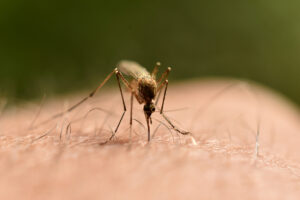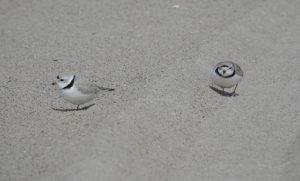
FALMOUTH – West Nile Virus has been confirmed in a Falmouth mosquito sample.
The following is the full statement from the state health department:
The Massachusetts Department of Public Health (MDPH) announced today that West Nile Virus (WNV) has been detected in a mosquito sample collected from Falmouth, Massachusetts, on July 29, 2025, at a sampling location in the vicinity of Siders Pond. The Cape Cod Mosquito Control Project collects routine mosquito samples as part of MDPH’s surveillance program for mosquito-borne diseases. The last positive WNV mosquito sample detected in Falmouth was June 24, 2025, off Woods Hole Road. No human cases have been detected.
The Falmouth Health Department will continue to work closely with MDPH and the Cape Cod Mosquito Control Project (CCMCP) on mosquito control efforts. The location of the positive sample is routinely treated by CCMCP and will remain an area of focus throughout the mosquito season.
WNV is most commonly transmitted to humans by the bite of an infected mosquito. The mosquitoes that carry this virus are common throughout the state and are found in both urban and rural areas. While WNV can infect people of all ages, those over age 50 are at higher risk for severe infection.
By taking a few common-sense precautions, people can help protect themselves and their loved ones:
Avoid Mosquito Bites:
• Apply insect repellent when outdoors. Use a repellent with DEET (N, N-diethyl-meta-toluamide), permethrin, picaridin (KBR 3023), IR3535, or oil of lemon eucalyptus [p-menthane-3,8-diol (PMD)], following the product label instructions. DEET should not be used on infants under 2 months and should be 30% or less for older children. Oil of lemon eucalyptus should not be used on children under 3 years. Permethrin is for use on clothing, shoes, bed nets, and camping gear only—not skin.
• Clothing can help reduce mosquito bites. Wear long-sleeves, long pants, and socks when possible.
• Be aware of peak mosquito hours—dusk to dawn—and consider rescheduling outdoor activities during those times. If mosquitoes are present, move indoors, cover up, or apply repellent.Mosquito-Proof Your Home:
• Drain standing water. Mosquitoes lay eggs in stagnant water. Remove or drain items like flowerpots, wading pools, and birdbaths. Check gutters and drains regularly.
• Install or repair screens. Keep mosquitoes out with tightly fitting screens on windows and doors.More information about WNV and updates on virus activity in Massachusetts can be found at www.mass.gov/dph/mosquito.























